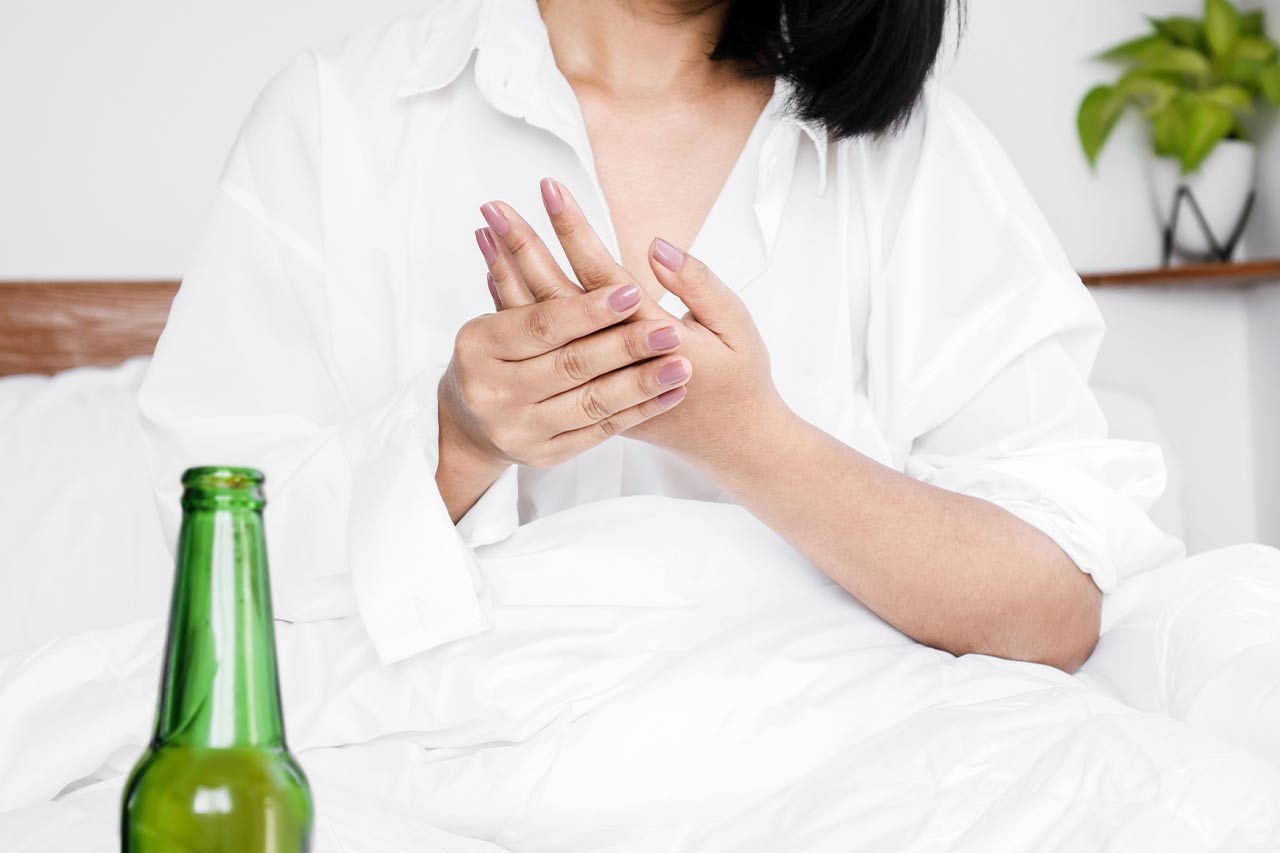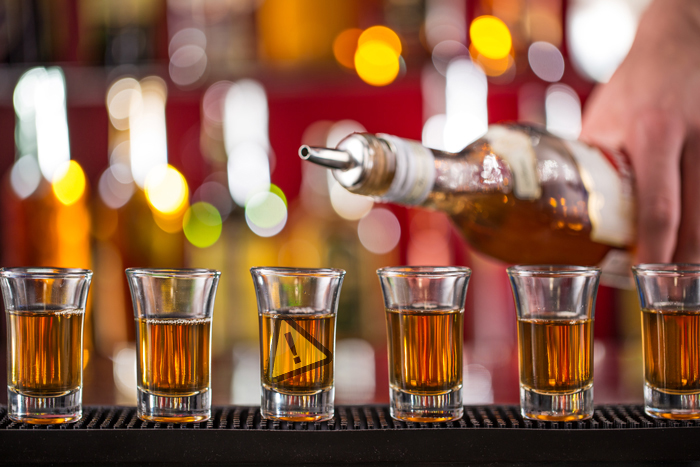If you suffer from arthritis, then it helps to understand how daily habits and behaviors can affect your condition. A common habit that people overlook is drinking. Alcohol is known to affect many conditions, contribute to many conditions, and interfere with medications that are designed to alleviate certain conditions. So, it’s no surprise that there’s a link between alcohol and arthritis, as well. If you suffer from joint pain, keep reading to learn how alcohol can affect you.
What Is Arthritis?
Arthritis refers to inflammation of one or more joints, causing pain and stiffness that worsens with age. While you may think of people in their 60’s or older when you hear arthritis, it can occur in people of all ages, although it’s most common in older people.
There are also different types of arthritis, each of which has different causes, including wearing, tearing, infections, and underlying diseases. The three types of arthritis are osteoarthritis, rheumatoid arthritis, and gout, all which damages joints in different ways.
Questions about our Programs?
Our admissions coordinators are available 24/7 to answer any questions you may have as you consider whether treatment at Banyan is right for you or your loved one.
Osteoarthritis
Osteoarthritis is the most common type of arthritis and is caused by wear-and-tear damage to the cartilage in a joint. Cartilage is a hard, slick coating on the ends of bones where they meet to create a joint. Cartilage cushions the ends of the bones and allows them to move in a joint without friction.
However, with enough damage, cartilage can be completely worn down to the point where bone touches bone, resulting in pain and restricted movement. This wear and tear can occur over many years, or it can occur suddenly as a result of a joint injury or infection.
Osteoarthritis also changes the bones and causes deterioration of connective tissues that attach muscle to bone and hold the joint together. When cartilage in a joint is damaged, the joint lining may become inflamed and swollen, which of course, can be painful.
Rheumatoid Arthritis
Rheumatoid arthritis occurs when the body’s immune system attacks the lining of the joint capsule, which is a thick, tough membrane that encloses the joint. When someone has rheumatoid arthritis, this lining becomes inflamed and swollen. Eventually, this disease destroys cartilage causing bone to rub against bone at the joint.
Gout
Gout is a form of arthritis that occurs when uric acid builds up in the joints, forming sharp crystals that cause swelling and pain. These episodes of pain are referred to as gout attacks. Gout can affect anyone but usually occurs at an earlier age in men than in women, who often don’t experience gout until after menopause. Risk factors for gout include consuming a high animal protein, taking diuretics, and heavy drinking.
How Does Alcohol Affect Arthritis?
Risk factors for arthritis include family history, age, sex, prior joint injuries, and obesity. However, alcohol or too much of any alcohol can trigger arthritis flare-ups, especially gout attacks.
Alcohol worsens arthritis because of its inflammatory effects. Drinking can aggravate both degenerative joint pain from osteoarthritis and arthritis caused by auto-immune conditions like rheumatoid arthritis. It’s also best to avoid consuming foods and drinks that are high in purine, such as beer.
Purines are a natural substance found in some foods. While they aren’t all bad, consuming high amounts can exacerbate gout symptoms. When your body digests purine, it produces uric acid, which is the source of gout attacks.
Alcohol can also impair immune function, making it more difficult for the body to combat any triggers of joint pain and heal itself from an injury. So, in these scenarios, alcohol does make arthritis worse.
Can You Drink with Rheumatoid Arthritis Medication?
Alcohol and arthritis flare-up risks are also dependent on the arthritis medication the person takes. Two major concerns of taking arthritis medication and alcohol are liver damage and gastrointestinal bleeding.
Medications like methotrexate, leflunomide, and disease-modifying antirheumatic drugs (DMARDs) can elevate liver enzymes, which can lead to fibrosis (build-up of scar tissue) and other forms of liver damage. Considering the many known effects of alcohol on the liver, drinking on these arthritis medications can increase the risk of liver disease and even failure.
The risk of toxicity is also dependent on the dose of the medication. When you mix the medication with a substance like alcohol that’s processed in the liver, there’s the risk of accelerating toxicity to the liver. This is why it’s important to ask your doctor whether you can drink alcohol on arthritis medication.
Additionally, people who are taking non-steroidal anti-inflammatory drugs (NSAIDs) such as ibuprofen and naproxen to treat arthritis flare-ups should also avoid drinking alcohol unless given the okay by a doctor. (NSAIDs) can irritate the stomach lining, sometimes causing ulcers or bleeding in the digestive tract. The more you drink on this medication, the higher your risk of gastrointestinal bleeding.
To sum it up, do not drink alcohol with rheumatoid arthritis medication or any other arthritis medication without consulting your doctor first.
Get a Free Insurance Verification Today!
"*" indicates required fields
Can Alcohol Cause Arthritis?
Considering that drinking beer can increase uric acid in the joints, you can say that alcohol causes arthritis, particularly gout. However, while alcohol can worsen arthritis symptoms by causing inflammation and inhibiting immune function, there is no direct correlation between drinking and other types of arthritis.
It’s also important to note that people with alcoholism and binge drinkers are more likely to experience gout. Addiction is also another common and impacting repercussion of heavy drinking that could change your life in more ways than one.
If you or someone you care about has a drinking problem, do not wait to reach out for help. Gout is only one of the many dangers of alcohol abuse. Along with medical alcohol detox, our drug and alcohol treatment center in Palm Beach offers inpatient and outpatient treatment options to help people recover from their substance use disorders and learn how to live sober lives.
Whether it’s drug or alcohol treatment you need, we’re here to help. Call Behavioral Health of the Palm Beaches today at 561-220-3981 to learn how to get started.
Related Reading:













